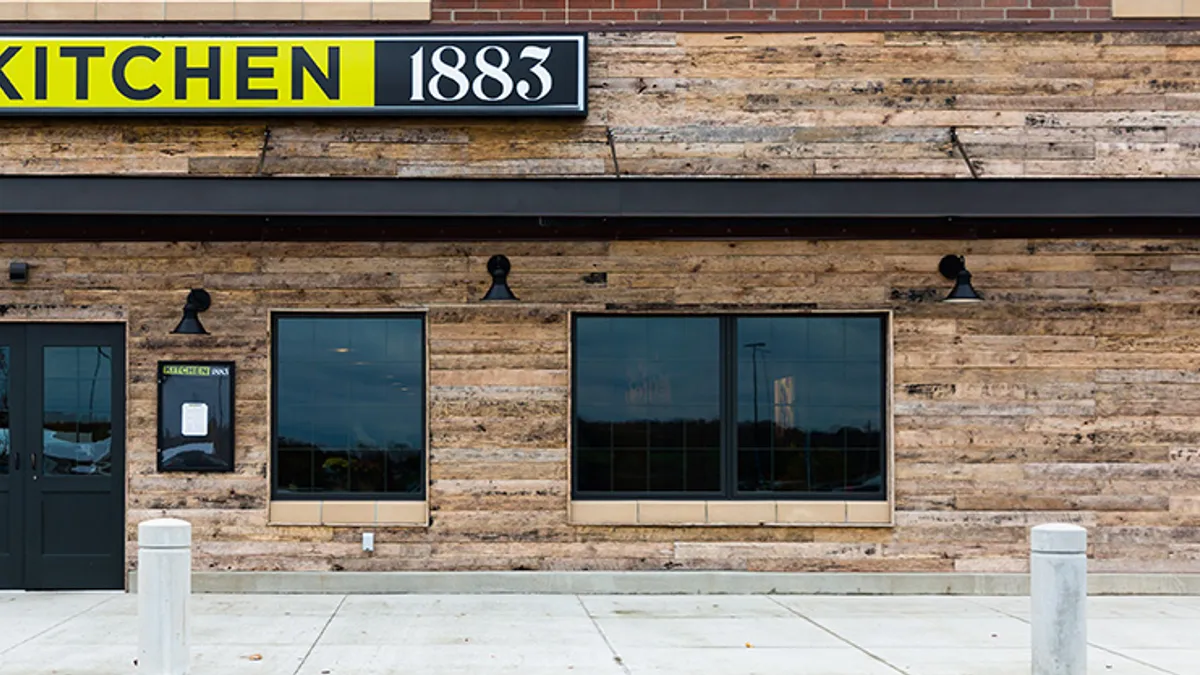Dive Brief:
- Kroger announced it will open its second Kitchen 1883 restaurant in the fall following what it called in a written statement its successful launch of the full-service dining experience in November 2017 in northern Kentucky.
- The menu features “new American comfort” cuisine, local and seasonal dishes and cocktails served in a casual atmosphere. The new location will be a standalone restaurant with a patio in a Cincinnati suburb.
- Kroger’s announcement comes just over a month after the company opened its new Culinary Innovation Center — which includes a test kitchen and education center —in Cincinnati.
Dive Insight:
Since Kroger is the largest grocery chain in the country, this success could have big implications in the grocerant space, and could inspire even more growth in the supermarket foodservice category.
The timing is ripe for new revenue channels. In 2015, for the first time on record, Americans spent more money dining out than they did at traditional grocery stores. In 2017, Technomic predicted a 6.5% growth in the supermarket foodservice category to answer these quickly-changing consumer demands.
Restaurants are notoriously challenging to operate. One study finds that 80% fail within five years. But there are plenty of reasons to believe Kroger will do just fine in this space. For starters, the branding and culture of Kitchen 1883 are entirely different from the grocery store, which should ease any potential trepidation about Kroger functioning outside of its perceived area of expertise. This autonomy should be even more pronounced for location No. 2 — which is a standalone — versus the first restaurant, located adjacent to a Kroger store.
Kitchen 1883 also seems to have nailed down the most critical detail for restaurants: the food. The concept is heavily focused on regional and seasonal offerings — big demands in the restaurant space. Notably, Kroger won a Menu Trendsetter award from trade publication Nation’s Restaurant News. Reviews on Yelp are largely positive, with many patrons noting the convenience factor of being able to eat and then shop for groceries or vice versa.
The company’s new Culinary Training Facility will further hone the chain's foodservice proficiency and, according to Kroger VP Daniel Hammer, will “allow us to accelerate product development, produce new recipes … explore new restaurant concepts.”
Consumers chasing convenience and variety have blurred every line in foodservice. Even Kroger CEO Rodney McMullen acknowledges that anyone who sells food is now viewed as a competitor. If Kroger can simultaneously refine its capability in food preparation while not losing focus on its core business, the company should be in good shape in this competitive environment.





